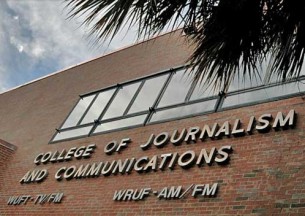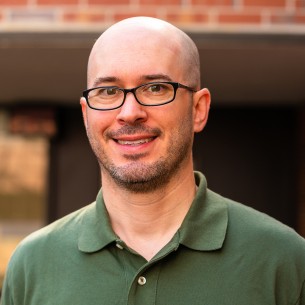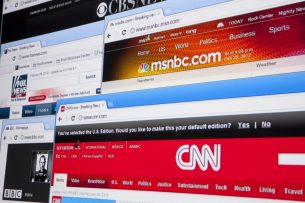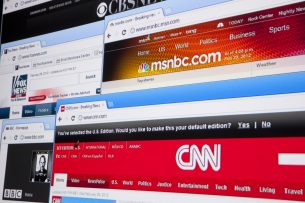
The University of Florida College of Journalism and Communications (UFCJC) today announced promotions for five faculty members. Eric Esterline, Media Production, Management, and Technology lecturer in sports media and communication and director of the Sports Journalism and Communication Program, has been promoted to senior lecturer. Esterline originally joined the College…
Read more
University of Florida College of Journalism and Communications faculty and doctoral students will be presenting at the International Public Relations Research Conference in Orlando, Florida from March 3-5. Public Relations Associate Professor Rita Men and doctoral students Jie Jin, Renee Mitson, Yufan Sunny Qin, and Marc Vielledent will receive the…
Read more
Persuasive messaging isn’t what it used to be—at least when it comes to scientific facts. In our polarized political environment, scientific knowledge alone is not always enough to inspire change or action. When it comes to environmental topics in particular, imparting such information without a careful strategy is often ineffective…
Read more
University of Florida College of Journalism and Communications Public Relations Assistant Professor Jay Hmielowski is the co-author of “Are You Threatening Me? Identity Threat, Resistance to Persuasion, and Boomerang Effects in Environmental Communication” published in Environmental Communication on Nov. 25. Hmielowski and Yanni Ma from Oregon State University examined resistance…
Read more
University of Florida College of Journalism and Communications Public Relations Assistant Professor Jay Hmielowski is the co-author of “Laugh, But Don’t Seek: A Reassessment of the Gateway Hypothesis” published in the International Journal of Communication, Vol. 15, 2021. Hmielowski and Michaele Myers examined the gateway hypothesis which argues that political…
Read more
University of Florida College of Journalism and Communications Public Relations Assistant Professor Jay Hmielowski is the co-author of “Clearing the Smog? Examining the Relationship Between Traditional Media Versus Nontraditional Internet-Based Media and Risk Information Seeking in China” published in the International Journal of Communication, Vol. 15 (2021). Hmielowski and co-authors…
Read more
University of Florida College of Journalism and Communications Public Relations Assistant Professor Jay Hmielowski and CJC doctoral students Eve Heffron and Michael Munroe are the co-authors of “You’ve Lost That Trusting Feeling: Diminishing Trust in the News Media in Rural Versus Urban U.S. Communities” published in The Social Science Journal…
Read more
Levels of political polarization continue to escalate in the U.S., causing an increasingly wide chasm between liberals and conservatives. Existing research suggests that this divide could be engendered in part because certain segments of the population rely heavily on partisan media outlets as a source of news. University of Florida…
Read more
The U.S. is currently moving forward with modernizing the energy grid. Part of that process involves updating the meters that track electricity use on people’s houses. Currently, most houses use old analog meters to assess electricity use. Most of these analog meters are currently being replaced with smart meter technology.…
Read more
University of Florida College of Journalism and Communications Public Relations Assistant Professor Jay Hmielowski is the co-author of “Understanding Public Support for Smart Meters: Media Attention, Misperceptions and Knowledge” published in the Journal of Risk Research on Dec. 29. Hmielowski, Alex Kirkpatrick and Amanda Boyd studied literature on misinformation by…
Read more
University of Florida College of Journalism and Communications Public Relations Assistant Professors Jay Hmielowski and Myiah Hutchens are the co-authors of a blog “Conservatives Are More Likely Than Liberals to Exist in a Media Echo Chamber” posted on the London School of Economics US Centre’s blog on American Politics and…
Read more
This article originally appeared on the London School of Economics US Centre’s daily blog. As partisan news networks like Fox News and MSNBC have risen in popularity, so has the polarization of many Americans’ political views. In new research, Jay Hmielowski, Myiah Hutchens, and Michael Beam find that while both liberal and conservative media contribute…
Read more